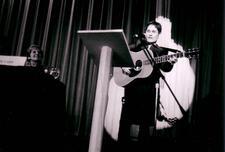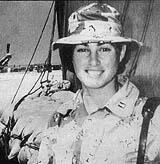Religion
Stella Heinsheimer Freiberg
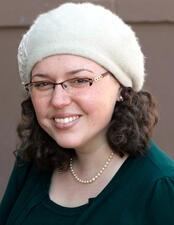
Ruth Balinsky Friedman
Mamie Gamoran
Evelyn Garfiel
Evelyn Garfiel’s Jewish scholarship on topics like the prayer book and the Hebrew language helped make Jewish study accessible to the broader public. She served on the boards of several Jewish women’s organizations and published a book in 1957 that explored the prayer book and explained the origins and purpose of different prayers.
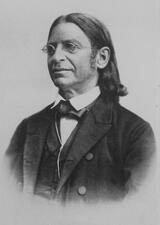
Abraham Geiger
Abraham Geiger (1810-1874) was one of the most influential Jewish thinkers of the nineteenth century. He was one of the major intellectual leaders and founders of the Reform movement in Germany and a strong supporter of Jews entering European society. As part of his vision of Judaism, he argued for a Judaism oriented around the home and domestic life, but also a Judaism that both elevated and sidelined the women that had long created that domestic life.
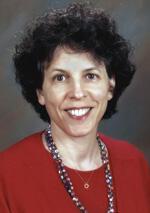
Laura Geller
Gender Identity In Halakhic Discourse
Mary Gendler
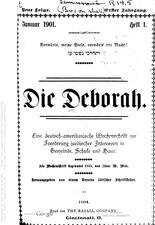
German Immigrant Period in the United States
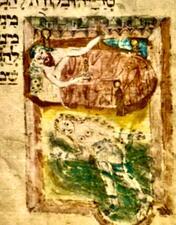
German-Jewish Pietists: Attitudes towards Women
Despite their small numbers, the introspective and penitential religious outlook of the German-Jewish Piestists had a significant and lasting impact on European Jewry. Written by men and intended for a male audience, the Pietists’ writings heighten the profound ambivalence toward women that is inherent in the rabbinic tradition
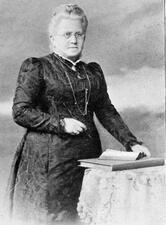
Germany: 1750-1945
The Jewish Reform movement did not liberate women from their subordinate religious status, and the nineteenth-century bourgeois German family ideal with its rigid gender roles soon eclipsed the fluid structure of premodern Jewish families. Jewish women were expected to transmit German bourgeois values while also shaping their children’s Jewish identity.
Blanche Gilman
A native New Yorker, Blanche Pearl Gilman contributed her energy and resources to a variety of religious, health, social, and activist organizations. Gilman devoted her career to bringing diverse groups together, from her interfaith work to her leadership in the Pro-Falasha (Ethiopian Jewry) Committee.
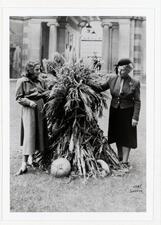
Adele Ginzberg
Known as “Mama G.” by generations of admirers, Adele Ginzberg was an influential figure in the Conservative Movement as wife of the famed Louis Ginzberg, professor of Talmud at the Jewish Theological Seminary, and was an active member of the National Women’s League of the United Synagogue. Ginzberg was a role model and inspiration to rabbinical students and women leaders and an early supporter of equal rights for women in synagogue rituals.
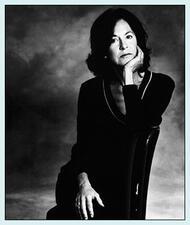
Louise Glück
Louise Glück, American poet, essayist, and educator, was the recipient of the 2020 Nobel Prize in Literature, as well as numerous other awards for her writing; she also served as poet laureate of the United States from 2003 to 2004. One finds the personal, the mythological, and the Biblical woven intricately throughout Glück’s oeuvre.
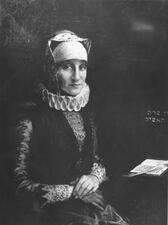
Glueckel of Hameln
Born into an affluent family in Hamburg, Glückel of Hameln became the business partner of her beloved first husband. She began writing memoirs in 1691, after her husband’s death. These memoirs are incredibly detailed, combining a meticulous record of her life and descriptions of events that occurred in local Jewish communities. Her memoirs are both a singularly important social and historical document and one of the greatest literary achievements of Ashkenazi prose–in Yiddish or Hebrew–at least until the end of the eighteenth century.
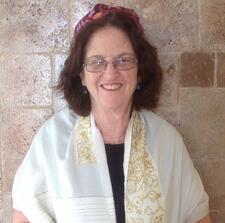
Miri Gold
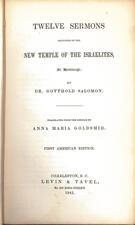
Anna Maria Goldsmid
Anna Maria Goldsmid was a Victorian Jewish advocate of women’s education and Jewish emancipation who made a name for herself as a translator, lecturer, philanthropist, and poet.
Edna Goldsmith
Edna Goldsmith was a driving force in the establishment of the Ohio Federation of Temple Sisterhoods. A founder of the federation, she served as its first president from 1918 to 1923 and then as honorary president until her death. Throughout her life, Goldsmith was active in welfare organizations, concentrating particularly in the educational field.
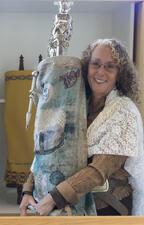
Elyse Goldstein
Rebecca Fischel Goldstein
The quintessential rebbetzin [rabbi’s wife], Rebecca Fischel Goldstein was a prime mover in her husband’s drive to build the Institutional Synagogue and make it a center of Jewish life in Harlem. As a consummate volunteer leader, she strove to make women a dominant force in organized Jewish life.
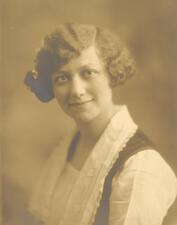
Rose (Berman) Goldstein
An early advocate of increased rights and responsibilities for women in Jewish life, Rose Goldstein was a prominent leader in the National Women’s League of the United Synagogue of America. She published a book detailing her relationship between scripture and her own self-understanding in 1972.
Gomer, daughter of Diblaim: Midrash and Aggadah
According to the Rabbis, God commanded Hosea to marry Gomer, the daughter of Diblaim, to teach him proper conduct for one who was to prophesy to Israel. Despite Gomer’s harlotry, the rabbis interpret her story as proof that, even when God is angry with Israel, God still loves Israel.
Gomer: Bible
The prophet Hosea uses his adulterous wife Gomer as a metaphor for God as the faithful husband to Israel. Gomer and Hosea’s relationship shows how women were ostracized for extramarital sex while such behavior was tolerated if not encouraged in men, paralleling the relationship between Israel and God. It is difficult, however, to separate historical facts about the couple’s domestic problems from the theological message expressed through them.

